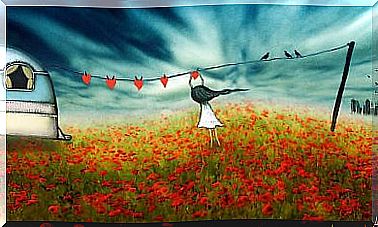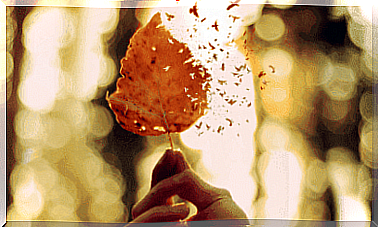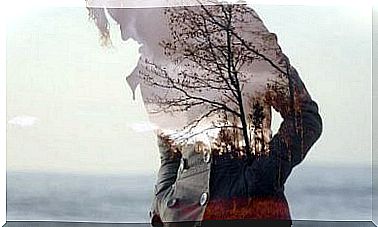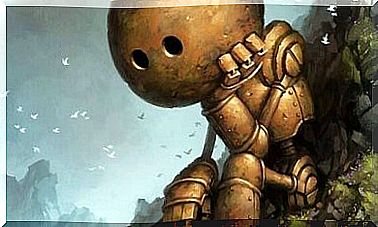The Magical Effect Reading Has On Our Brain

When we read novels, stories and essays, we imagine situations, scenarios and characters. When we turn leaf after leaf, we create mental images of faces, clothes, landscapes, spaces and distances. And this is where the magical effect reading has on our brain begins.
Reading, as an activity, is the perfect opportunity to relax and take it easy with our internal dialogue. The reading stops the doubts, the accusations and the ominous thoughts about all the problems that we cannot solve. Reading activates several different areas in our brain.
Language in the right hemisphere
Neurologist Guillermo Garcia Ribas claims that there are two aspects that reading trains and facilitates: decoding of language and symbolic thinking. Alex Huth is also part of the team that has mapped the brain’s semantic system. Surprisingly, he discovered that language is not limited to the left hemisphere, as previously thought. It seems more precisely that it is the production of languages that belongs to this area. However, much of the language comprehension seems to occur in the right half.
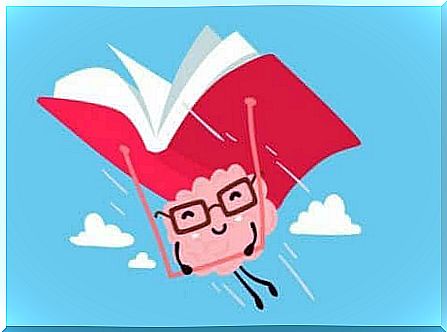
Reading activates our mental GPS
Neuroscientist Aidan J. Homer claims that the representation of mental images affects the cortical and subcortical nervous systems. It also activates a network of grid cells, or grid neurons, in the cerebral cortex. These grid cells are responsible for spatial location. That is, they make the brain understand its spatial position.
They are activated through the mental images that are created when reading a description of characters in an environment. This also happens when we imagine ourselves to be in one place. They are activated in the same way as they would be with visual or auditory stimuli.
These grid neurons show a strong regulation of theta waves. These are long-amplitude electrical impulses related to the reorganization of the brain structure. These are also low frequency waves. Therefore, some believe that they facilitate access to unconscious content.
Theta waves are characteristic during sleep phases 1 and 2 in adults. However, children spend their waking hours in theta wave states during their first years of life. When this occurs during wakefulness in adults, something similar occurs in the consciousness gained after training in meditation or hypnosis.
That is, the effect of reading on our brain is, among other things, that it facilitates the state of consciousness that provides access to the unconscious or subconscious. At the same time, there is a reorganization of brain structures and nerve networks.
Mirrors to look at
Robert Harris of Emory University performed a magnetic resonance imaging on a group of people during the number of days it took them to read a novel. The study gave some fantastic results.
The movements of the characters in the book activated different brain areas in the readers. The activated areas were those that would have been activated if they had performed the movements themselves. In addition, an important reinforcement was found in the neuron connections in the central groove. This area is linked to bodily sensations and empathy.

Leaves an imprint in the brain
Robert Harris’ experiments yielded assured results. The researchers discovered a neuronal imprint that the reader of a novel had for days after finishing his book. They performed magnetic resonance imaging on the same participant days after completing the reading. The researchers found that the increased connection from during the reading period was maintained for several days later, even though the person no longer read the book.
They called this “activity shadow”. The body still lives with the effects of books five days after completing them. It even seems that our bodies can keep the imprint even longer if we liked the book very much.
This “activity shadow” that comes from reading in our brain can explain why books are so magical. It is the same magic that allows characters and stories to stay in us even after we have finished reading a book.

